

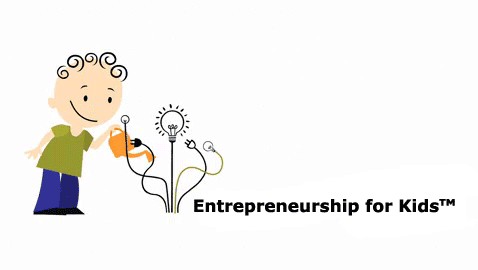
This page is a continuation of the "Kids Initiate " page. On this page, we feature additional projects undertaken by students, children, and youth participating in the Israeli Entrepreneurship for Kids (EFK) program. Some of the projects are social, while others are inventions, and they all give children the feeling that they, too, can bring their ideas to life.
As part of the entrepreneurship studies, the execution of a project designed by the students is essential. It promotes significant learning while understanding the entrepreneurial process, both in theory and in practice.
The role of teachers in the entrepreneurship process is to serve as mentors who encourage students, show them the way, and give them the knowledge to succeed as well as cope with the difficulties that arise during the entrepreneurial path, both on a personal and practical level.
The Biotechnology Project: UQuarium
The Youth Entrepreneurs: Students of Tzvia High School Yeshiva in Eilat
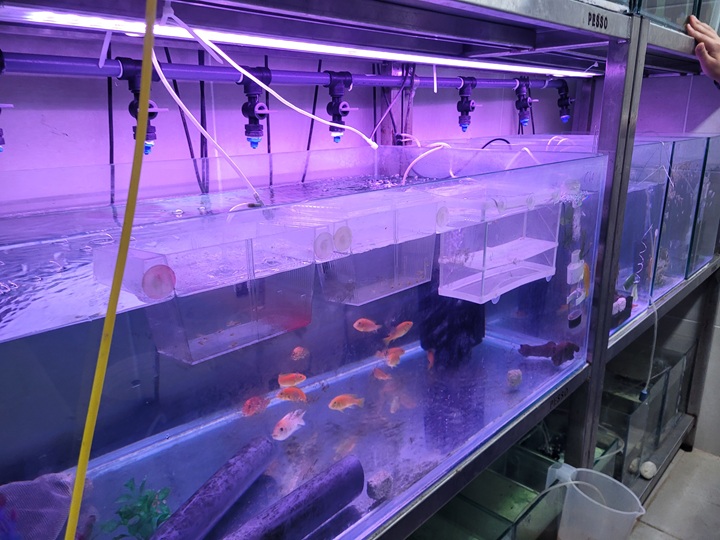
Students from the biotechnology track at Tzvia Yeshiva in Eilat participated in a business entrepreneurship course led by Galit Zamler.
The track instructors, Dr. Omer Polak and Dr. Itai Cohen, accompanied the teams from session to session throughout the course.
At the end of the course, we held a meeting with senior figures in education and industry. In this meeting, the students presented their ideas for ventures, explained their business models, their competitive advantages, and how they plan to implement them.
Two ventures won entry to Seanovation's accelerator and professional mentorship guidance.
We already wrote about the first venture, Reeform. The second venture is UQuarium - an innovative and engaging learning method for children and people who want to maintain aquariums.
The entrepreneurs utilized no-code tools to create a prototype for their venture, which greatly impressed the judges.
The project: Building Benches and a Deck
The Entrepreneurial Girls: Students of the Ulpana Amit Lehavah in Kdumim
Seventh-grade students at the Ulpana Amit Lehavah in Kdumim, who participated in an entrepreneurship course led by teacher Yael Shapira, planned and executed a project of building benches and a deck for the Ulpana students to enjoy.
The following clip summarizes their project:

Read also about the students' social-environmental project: Living Among the Trees.
The project: Warming from the Heart
The young entrepreneurs: Tenth-graders from ORT Ironi Daled Middle School in Modi'in
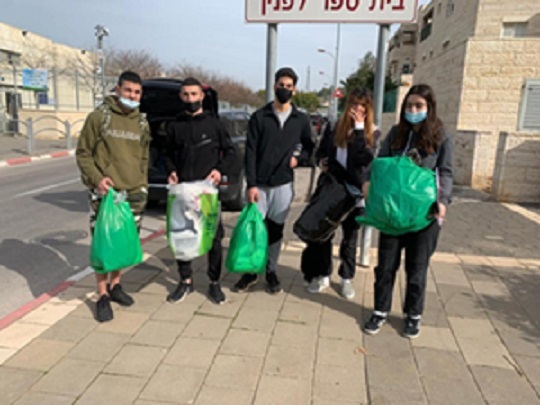
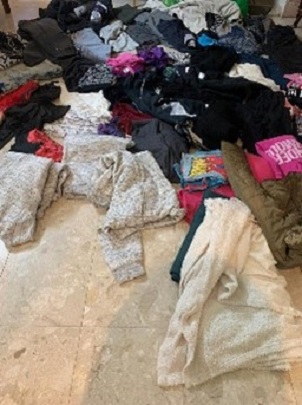
Tenth-grade students from ORT Ironi Daled Middle School are learning the Youth Entrepreneurship Program.
As part of the curriculum, students learned about what an entrepreneur is, their skills, various types of projects, and how to develop a business plan.
During the learning process, one of the students shared that he practices with a soccer team in the Hatikva neighborhood of Tel Aviv, and every time he goes to training, he sees homeless people on the streets. They gave rise to a lot of thoughts, pity, and even some fear.
His sharing made the students want to help the homeless ahead of the cold winter and provide them with warm clothes.
The students created a list of items that can help keep the homeless warm during cold days, including coats, blankets, socks, hats, mittens, neck warmers, and warm undershirts.
Teacher Inbal Sade says: "On the next step, we worked according to a business plan and split into two groups. The students specified the target audience, goal, background, project uniqueness, and other relevant details. They've added ideas on how to proceed with the project and identified who can assist them.
At this stage, they looked online for non-profit organizations that take care of the homeless in Tel Aviv and found a couple of them.
Together, we reached out to Lasova, which provides shelter, education, and art activities for the homeless in Tel Aviv. There, we met Roni - a social worker who got very emotional with our initiative and was very happy to hear that we can help.
The students organized an election event to elect the project's name, and the one they chose was "Warming from the heart."
Within a couple of days, the students collected bags of warm winter gear from their homes, as well as from neighbors and acquaintances. The winter gear was handed to the Lasova organization, which handed it over to those in need".
The project instilled a sense of pride among the students, and they went on to participate in another activity: baking cookies and preparing greeting cards in preparation for Purim.
The project: Improving the Learning Experience
The young entrepreneurs: Fifth graders at the Northern Star School in Ashkelon
Four fifth-graders at the Northern Star School in Ashkelon, led by Sarry Plum, participated in an online entrepreneurship course led by Galit Zamler.
Like most students in the country and around the world, students have faced challenges with distance learning due to the COVID-19 pandemic.
In the first session, the students learned that entrepreneurs not only complain but also take action.
Thus, we conceived the project idea of enhancing the learning experience during and after the COVID-19 pandemic.
We conducted a brainstorming process, and the students generated numerous ideas, some of which are applicable and some that are not.
The students held a lively discussion among themselves about each idea of how applicable it would be. Then, we conducted a poll, and in each class, the students chose 5-6 of the best ideas.
At the end of the process, their educators joined our session. The students pitched the ideas and explained their rationale.
With great sensitivity and understanding, the educators listened to and discussed all the students' ideas, even accepting those that could be implemented.
This process made students feel meaningful and influential.

The project: Corona Kit
The young entrepreneurs: Third-grade students at the Sadot School in Pardes Hanna Karkur
Ella Livna and Ziv Hochberg from the Sadot School participated in the first national virtual hackathon for students in Israel and won third place.
This video is their pitch:
The two girls have developed a Corona Kit that includes ingredients and instructions for making alco-gel, three masks, and games (such as Sudoku and bulk).
According to them, the project came to solve people's boredom during the lockdown period.
To the question, how was the idea born? they answered so: "Ziv saw a video on how to make alco-gel, and from there, we developed the idea."
The judges wrote as feedback: "Ella and Ziv, well done! Your idea for the project is charming and combines both a solution to relieve boredom and a solution to maintain health."
The event: Selling Jachnuns
The entrepreneurs' students: Students at the De Shalit Junior High School in Rehovot
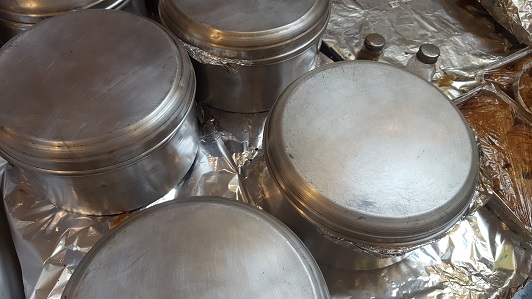
A ninth-grade entrepreneurial class at De Shalit Junior High School in Rehovot, led by teacher Shai Abramovich, established a venture selling jachnuns to school students.
Jachnun is a traditional Yemenite food that is popular in Israel, especially on weekends.
Initially, the the students' goal was to lead a business venture through sales. To differentiate their project, the students understood that they had to offer for sale something that was not sold in the school cafeteria or in shops near it.
After a brainstorming process, they concluded that they should sell Jachnun, crushed tomatoes, and eggs. That's how people are used to eating jachnun.
The young entrepreneurs managed and planned the entire operation for preparing the food. They made price lists, advertised, and even found someone who donated them plates.
The venture exceeded expectations. Already in the first break, revenues were over NIS 1,000. In light of the project's success and the demand from school students, the entrepreneurs led three jachnun sales days.
The event: Entrepreneurs Conference
The entrepreneurs' students: Students at the A.D Gordon School in Kfar Saba
Students at the A.D Gordon School acquire entrepreneurial skills and experience the entrepreneurial process to prepare them for real life. They learn to be independent learners, express their strengths, take proactive steps, and believe in themselves.
At the end of the year, the school organized a conference of entrepreneurs, during which the entrepreneurs, who were third to sixth graders, presented their projects to their parents.
This video presents only some of the students' many ideas:
The social initiative: Lag BaOmer Activity
The social entrepreneurs: Third-grade pupils at the Yitzhak Navon School in Shoham
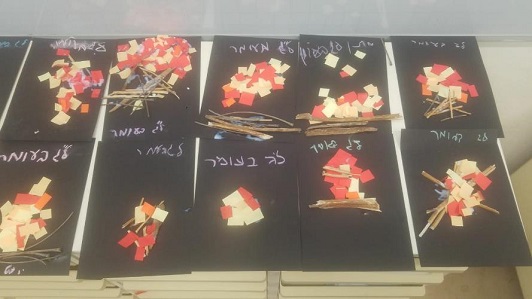
The idea was born out of the thought that instead of having a ceremony, we would conduct activities in which the students are involved and can engage in the study while preparing for the activity.
The children decided to make presentations on Lag BaOmer that could include the Lag B'Omer story, customs, a quiz on the topic, fun activities, and, in the end, a project related to Lag BaOmer.
The teacher said that at first, she was unsure whether the children would succeed with the project. But to help them in the process, she harnessed her desire to empower the class and instill in students the belief that they can succeed.
The children wanted to conduct activities related to Lag BaOmer for grades one to three, in which the participants would prepare a fire on bristols by using a mosaic of colors, papers, and twigs.
The entrepreneurial process encouraged the young students to think independently, organize themselves as a team, and work together to make the initiative succeed. It also made them understand that even if something does not work out, they can overcome it by rethinking how to solve the problem.
The children were divided into groups, where each group was responsible for guiding the activity in another classroom.
Some students prepared presentations on the subject of Lag BaOmer, while others handled the materials, resulting in two groups collaborating.
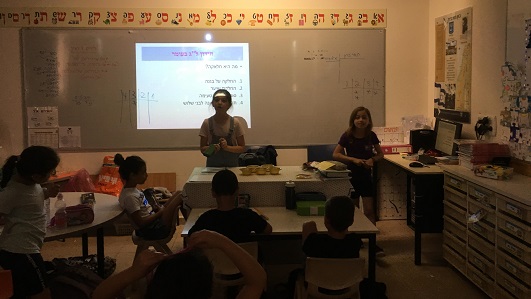
Teacher Dalit summarized the entrepreneurial process that the students underwent as follows:
"First of all, the students returned happily!
The spark in their eyes, the feeling that they did it alone and succeeded, gave them the sense that if they wanted to, they could.
There was fruitful cooperation between the various groups. Students volunteered to help other groups if something was missing.
There was a group that was unable to upload the presentation, and a second group provided them with a USB flash drive containing the presentation so that they could copy it to their desktop.
It was enjoyable to see them with sparkling eyes, happy, and lots of satisfaction."
The social initiative: Buying Games for the Children's Department at Tel-Hashomer Hospital
The social entrepreneurs: Fifth-graders at the Yitzhak Navon School in Shoham
The students at the Yitzhak Navon School in Shoham participated in entrepreneurship lessons for the first time, concurrent with their teachers' institutional training.
The fifth-graders chose to undertake a social initiative benefiting children hospitalized at Tel-Hashomer Hospital.
The goal of the initiative was to make the stay of hospitalized children more pleasant.
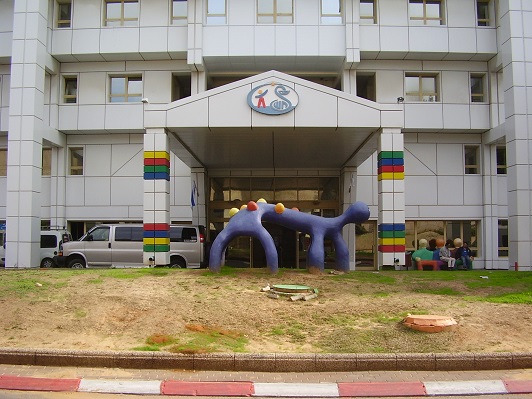
The idea was born after a student whose mother works at Tel-Hashomer Hospital told the class that there is a room in the hospital called the "playroom," where various games are available for hospitalized children.
She also noted that there was a need for more games in this room, particularly for boys, and that the hospital would be happy to get such games.
To get new games for the hospital, the kids organized a second-hand market at school. They decided to collect games, toys, puzzles, dolls, and more from students.
The children turned to the school's students, both in-person and via email, which was distributed to all parents with a request for the items and an explanation as to why they were needed.
After collecting the items, the children "priced" each item from 1 NIS to 20 NIS.
Together with the school administration, they decided on a day when the sale would take place in one of the Moshavim.
The children also took care of the marketing aspect: they advertised in the Moshav that a sale was taking place, presented all the items on large tables with prices, and managed to collect around 1,700 NIS.
In the next stage, the children made contact with the manager of a local toy store, presented their goal to her, and received a discount on buying new games. She also added small "treats" she could give away.
The students, after coordinating with the same mother who works in the hospital, came to the "playroom" and donated the games that they had purchased for the sick children to cheer them up.
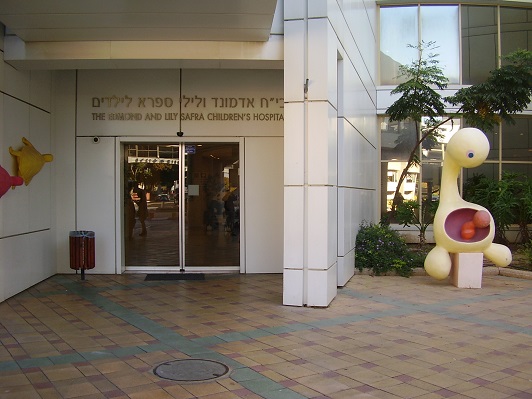
The children summed up the initiative as particularly successful, thanks to cooperation along the way between all the following factors:
* The cooperation of children and parents in bringing items
* The cooperation of children and parents in buying games and toys
* The cooperation of the toy store manager
* The cooperation of parents in coordination with the hospital
* Parents helped with the transportation to the Moshav
The technological initiative: Integrated Washing Machine
The young inventors: Sixth-graders at the Hayovel School in Ashdod
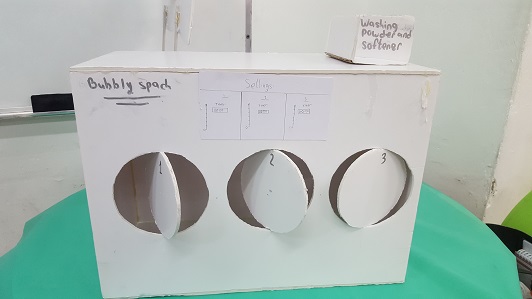
Sixth-graders at the "Hayovel" school in Ashdod, led by teacher Nili Arama, learn entrepreneurship classes.
The students thought of the need for young people to wash their clothes. On the one hand, they do not have many items of the same type to fill the washing machine quickly. On the other hand, they want to wear clean clothes.
That's where the idea came to prepare a model of a washing machine that, in one wash, can clean three types of laundry: colored, white, and towels.
The safety project: Airbag for the Student's Chair
The young inventors: Sixth-graders at the Hayovel School in Ashdod
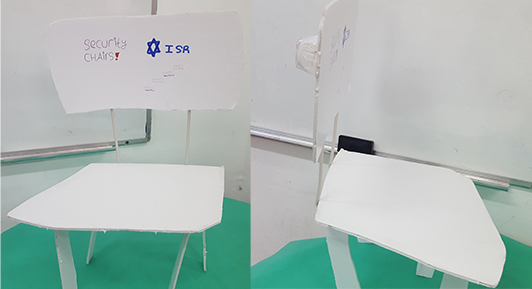
The entrepreneurial students are familiar with the phenomenon in which children swing on the chair and sometimes fall back.
These falls can end in disaster, especially if the falling student did not have time to stop themselves and ends up hitting their head.
To prevent such injuries, students thought of installing an airbag in the back of the chair. So, during the fall, the pillow will swell and protect the student's head.
The project: Bottle of Shampoo and Conditioner in Common
The young inventors: Sixth-graders at the Hayovel School in Ashdod
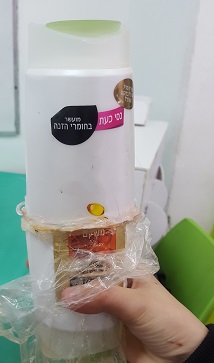
While washing their hair, the young students use the shampoo and then the conditioner.
To make it easier for them when they sleep away from home, they would like to have one bottle that contains both shampoo and conditioner on the same side.
After searching for such a product and being unable to find one, they decided to develop it themselves, as shown in the prototype picture.
The environmental initiative: Planting Plants in Public Areas
The entrepreneur children: A green initiative group in Be'eri school in Netanya

The Be'eri School educates for green initiatives and personal empowerment.
The green initiative group in the school, led by teacher Sigal, went to the public park on Weizman Street and planted seedlings.
The project was executed in cooperation with the Administration Wing of Districts and Parks in the city, as part of the Tu BiShvat events.
The social initiative: Mentoring First-grade Students
The entrepreneur children: Children aged 10-13 who participate in the entrepreneurship course in China

The Entrepreneurship for Kids Program is also taught in China.
Children aged 10-13 from China who participate in an entrepreneurship course at the School of Languages initiated an educational and social project for the school's community.
The group of young entrepreneurs planned a special mentoring seminar for the future first-graders who are joining the school. In this seminar, the older and more experienced students aid the younger ones in acclimating to their new school, share practical tips with them, and distribute a unique advice notebook that they have designed and written themselves.
The technological initiative: Alarm That Sprays Water
The entrepreneurial group: Children aged 10-13 who participate in the entrepreneurship course in China
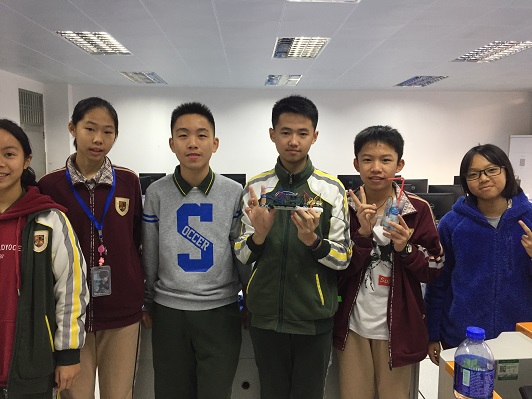
The children thought about problems that annoy them, and one of them was how hard it is to wake up when the clock rings.
One of the ideas that arose was to develop an alarm clock that also sprays water on the user, so that those who find it hard to wake up in the morning can wake up quickly.
The young initiators programmed an alarm clock that contains a function of spraying water using the Arduino hardware.
The educational initiative: Miniature World Park
The young entrepreneurs: Participants of the entrepreneurship course in China
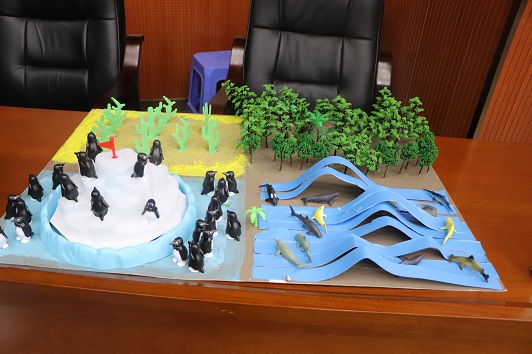
A group of entrepreneurs, participants in an entrepreneurship course in China, conceived an idea for an educational initiative aimed at illustrating the diverse geographic areas around the world.
The project's mission was to expose curious tourists from all over the world to different places around the world, all in one place.
As part of the project, the children created a model of the park, which resembles four distinct geographical areas: Ocean, Desert, Forest, and Polar.
The children built a simulation room that enables a peek into how the area will look and what activities it will contain.
Read about many more children's initiatives on the "Kids Initiate" page.